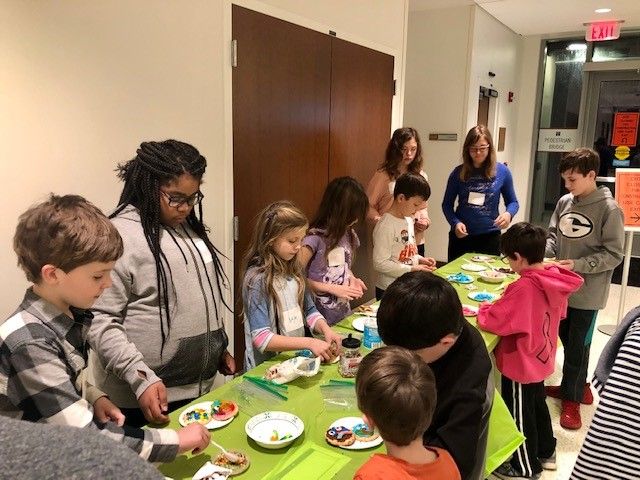Pediatrics
Want to learn more about this at Kettering Health?
Kettering Cancer Care’s CLIMB program is leading the way in creating kid-friendly activities for learning about cancer. The Children’s Treehouse Foundation, which developed the program, asked to adopt two activities the Kettering team created to share with all organizations offering this program across the world.
CLIMB, which stands for Children’s Lives Include Moments of Bravery, offers support to children who have a parent with cancer. The 6-week program includes a variety of hands-on activities.
While the program gives a guide to running the group with pre-planned activities, the Kettering team decided to get creative and add their own spin on it.
“In week two, the feeling of the day is confusion,” says DeAnn Gallatin, oncology social worker for Kettering Cancer Care. “That’s typically the week we’re teaching kids about cancer itself and its treatment.”
The team uses a stuffed animal “chemo duck” named Victoria that has a port so kids can see what it is and where it goes. Plush cells provide another visual, shaped like everything from white blood cells to lymphocytes.
The breast cancer cell is hairy and gray, but it can be flipped to a healthy, cheerful-looking cell when unzipped.
“It’s something they can touch and get the whole concept of chemo and radiation,” says DeAnn.
Kids can then demonstrate what they’ve learned about cancer cells—and have a snack—with the next activity. With two sugar cookies, the kids use decoration to show an “angry, ugly” cancer cell and a healthy one to go with it.
Even though they leave with handfuls of sugar, the kids seem more interested in showing the finished product to their parents.
“It was interesting to watch them be able to verbalize the difference,” DeAnn says. “The more hands-on activities, the better with this age group.”
And those activities weren’t just a hit with the kids. The director of the Children’s Treehouse Foundation was impressed with the changes to the program and asked the team to film them for future training for programs from neighboring states to places like Ireland and Japan.
“Knowing people all over the world are going to be using these activities is really neat,” DeAnn says. “I’d love to see people making those cookies.









